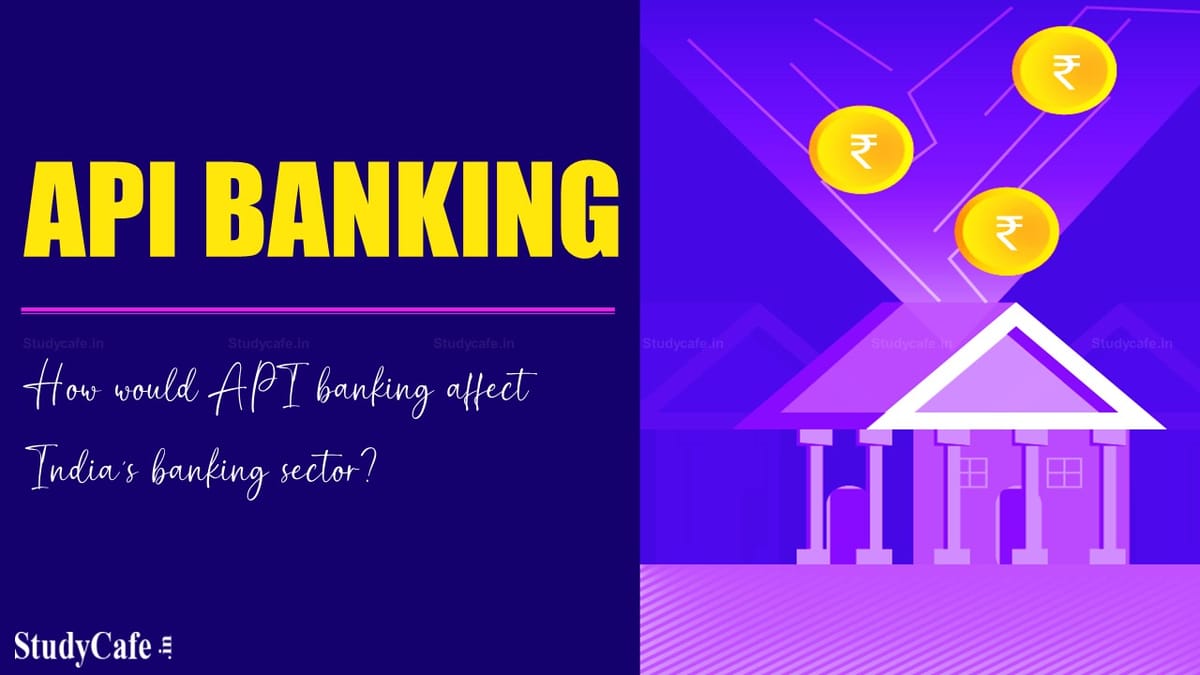Deepshikha | Jun 26, 2022 |

How would API banking affect India’s banking sector?
New-age fintech businesses are currently causing a slew of changes in the financial services industry. Indian banks have made their application programming interfaces (APIs) public, allowing third parties to build on them, innovate, and offer new goods and services. As a result of the transition, the way financial products and services are generated, delivered, and accessed has changed dramatically. Fintech companies have taken advantage of this chance to constantly introduce automation to provide a consistent consumer experience. This also enables them to perform banking operations and have access to banking data to develop new creative financial services. Customers can use them to complete transactions, check account information or balances, apply for loans, and receive payment instruments such as cards, among other things.
Let us take an example here:
APIs are a set of standards that make data transmission between two applications simple and secure. These serve as an intermediary layer, allowing data to flow between the two applications and allowing the two parties to benefit from each other’s data. Any third party, such as a tech company, a corporation, or a fintech player, can access a bank’s core banking system to execute banking operations via APIs given by the bank.
API-led banking has thus ushered in a sea change in the way financial transactions are conducted today, allowing for quick access to banking services, products, and data. Account opening, cash transfers, loans, card issuance, and other core banking services can be unbundled and made available via third parties.
For the banking sector, APIs help banks:
Third-party innovators have more flexibility to:
From a customer’s POV, they can:
Non-banks are developing and providing many fundamental financial services to customers by integrating with bank APIs. Platforms that provide banking-as-a-service (‘BaaS’) as middleware or an API-based BaaS layer are emerging. On the back end, this middle layer connects with banks and other regulated entities, while on the front end, it hosts a variety of fintech startups and non-bank enterprises. Various can be thought of as lego baseplates that these entities can ‘plug and play’ into. The regulatory foundation is provided by the underlying banking and other partners, the API platforms provide infrastructure, and fintech and other non-bank enterprises integrate financial services into their non-financial goods.
Fintechs and others are heavily using open-banking API services (among others) to:
With innovative products and services at their disposal, the end-consumer emerges as the largest winner. They also benefit from a superior customer experience at a low cost. Non-banks gain from the freedom to refocus on key business offerings, which fosters innovation and allows for faster time to market.
The success of BaaS is heavily reliant on banking and other players providing the necessary underlying regulated layer. Banks must take important efforts to enable collaborative innovation, such as modernising their existing technology stack, opening APIs, and facilitating third-party integrations. Here, security is critical, needing actions such as effective identity and access control and secure data transfer protocols.
Banks will increasingly outsource the distribution of their financial products and services to third-party fintechs and others in the future, changing the responsibilities of various stakeholders in the BaaS ecosystem. Third parties will be in charge of innovating to develop customer engagement and serve new-age expectations through personalization and value-added services. These third parties will assist banks in expanding their customer base and reaching out to previously untapped markets.
For all stakeholders, BaaS has opened up a wealth of possibilities. Accounts, issuing cards, investing, lending, and other services accessible through such collaborative third parties– this is fintech’s next big bet! It has undoubtedly opened up interesting opportunities in the banking industry. Open banking, embedded banking, co-lending, account aggregation, and API-driven financial infrastructure will all see significant developments in the future.
It is important to recognise that for a diverse economy like India, which has a wide range of financial needs, collaborative – rather than competitive – efforts are required to meet those needs. BaaS facilitates this by establishing a win-win situation for all players — banks, non-banks, and end customers. Our financial services landscape will change as APIs and API banking evolve.
In case of any Doubt regarding Membership you can mail us at contact@studycafe.in
Join Studycafe's WhatsApp Group or Telegram Channel for Latest Updates on Government Job, Sarkari Naukri, Private Jobs, Income Tax, GST, Companies Act, Judgements and CA, CS, ICWA, and MUCH MORE!"